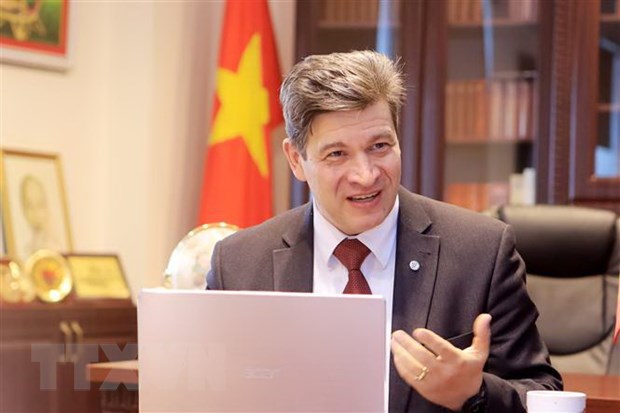 Politics & Law
Politics & Law

The paper, titled 'Some theoretical and practical issues on socialism and the path towards socialism in Việt Nam', has attracted attention at home and abroad.

|
| Prof. Dr Vladimir Kolotov of Russia’s Saint Petersburg State University. VNA/VNS Photo |
MOSCOW — A recent article by General Secretary of the Communist Party of Việt Nam (CPV) Central Committee Nguyễn Phú Trọng on socialism and the path towards socialism in Việt Nam greatly contributed to the development of Hồ Chí Minh thought, said Prof. Dr Vladimir Kolotov of Russia’s Saint Petersburg State University.
The paper, titled 'Some theoretical and practical issues on socialism and the path towards socialism in Việt Nam', has attracted attention at home and abroad.
It mentioned specific characteristics of socialism building in Việt Nam, which is a matter of interest in Russia, Kolotov said, noting that Việt Nam has constantly combined theoretical and practical approaches, which leads the country to success.
According to the scholar, in the article, the Vietnamese leader also touched on unsuccessful reforms in the former Soviet Union which resulted in its collapse, as well as weaknesses of the democratic institution, in which the power system is in the hands of a minority of the rich and serves the interests of capitalist groups.
In addition, the top leader also pointed out issues Việt Nam is currently facing and solutions to them, Kolotov said.
He shared the General Party Secretary’s views that Party building and rectification are a key task that is vital to the CPV and the socialist regime; and the CPV's determination to fight corruption, bureaucracy and degradation.
Kolotov noted that the CPV has taken action for the interests of the people, earning the people’s support, citing the Vietnamese top leader’s article as saying that the CPV’s leadership “is a decisive factor in the cause of Đổi Mới (Renewal) and would ensure the country's development in accordance with the socialist orientation.” — VNS